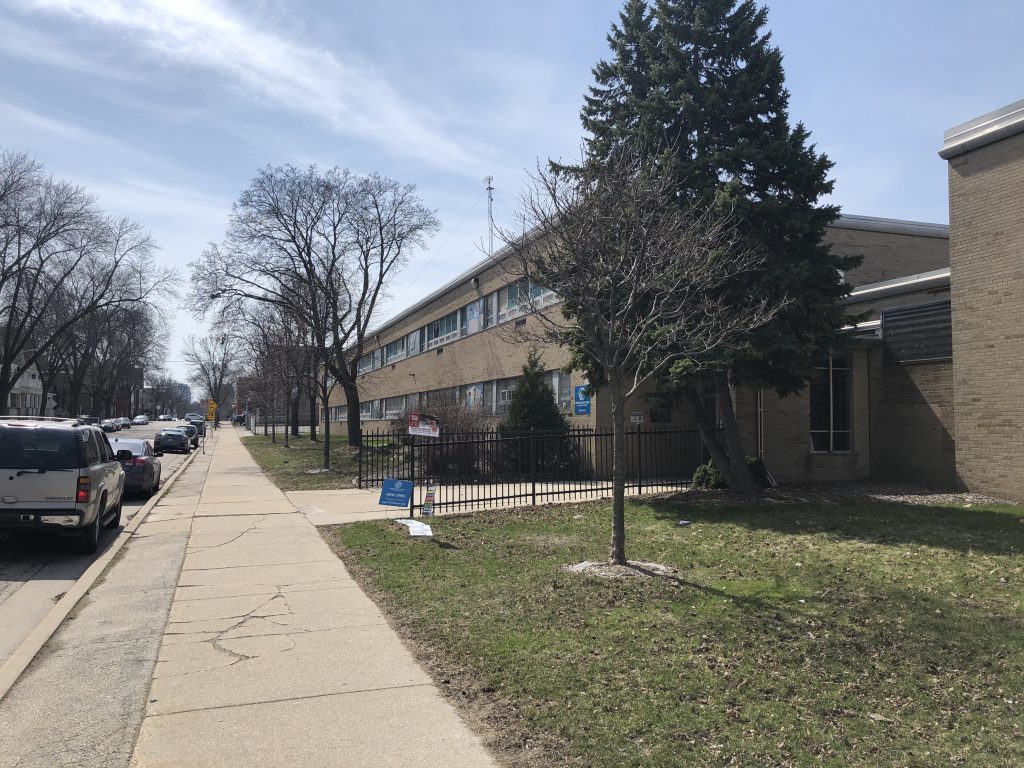Why Can’t MPS Improve Student Reading Scores?
Failure to use phonics and poorly trained teachers may help explain this.
Beginning sometime after 2000, there was growing concern that many students had difficulty with reading. When comparing reading scores on the National Assessment of Educational Progress (NAEP) among states, Massachusetts stood out. Suddenly, that state’s reading and math scores jumped.
What accounted for the jump in Massachusetts’ scores? That state decided to replace whole language (currently called “balanced literacy”) with a program that was based on research into the science of learning to read. Children learning to read were taught to sound out the parts of unknown words (called phonemes) and then combine these parts to sound out the whole word.
To enforce this change, the state designed a test for aspiring teachers to assess their knowledge of the research on the process of learning to read.
As the next graph shows, Milwaukee Public Schools made little or no progress during the last two decades. Scores were also flat during this period, indicating that many of its students were struggling with reading. They also trailed the average scores for big cities in the nation.
Starting in 2014, Wisconsin instituted a similar requirement for aspiring elementary teachers, special education teachers, reading teachers, and reading specialists. Those teachers are required to get a passing grade on the Wisconsin Foundations of Reading Test (FORT) in order to be fully licensed.
Surprisingly—and depressingly—the pass rate on the FORT test has steadily declined since it was introduced. This is shown by the next graph taken from the Department of Public Instruction’s 2022 Educator Preparation Program and Workforce Analysis Report issued this month. In my opinion, this graph represents a failure by the colleges of education that claim to prepare their students to teach. It appears that many of the colleges have concluded that learning to teach reading is something that teachers should master on their own, rather than be one of the most important elements of their programs.
This failure is not evenly distributed among the Wisconsin schools of education. The graph below shows the number of potential teachers who took the Wisconsin FORT test and their pass rates by the universities they attended. The number of test takers are shown by the blue columns, using the left-hand scale. The percentage who passed the test are shown by the orange line and the right-hand scale. The universities are arranged by their pass rates, with the least successful on the left and the most successful on the right.
There is little in common among the various Universities of Wisconsin campuses, which show substantial variability in their ability to prepare their students for the FORT. UW-Madison students have the greatest success on the test, with an 83% pass rate. At many of the other UW campuses, including UW-Milwaukee, fewer than half of the students pass. At UW-Whitewater, the school with the largest number of test-takers, only a third passed.
The need for more effective reading instruction is particularly urgent for children growing up in poverty in large cities. Participation in NAEP is voluntary. Only four of the 26 urban school districts whose students participate in the program are in the Midwest and all four (Chicago, Milwaukee, Cleveland and Detroit) score below that average for large cities, as shown in the graph below.
Recently the Legislature passed, and Governor Tony Evers signed, a bill that requires schools to teach reading using methods that are supported by research. Somewhat surprisingly, Mississippi was the state that often came up for discussion. The next graph shows why. Mississippi (the blue line) has seen a tremendous increase in fourth-grade reading scores.
Schools are currently challenged by a shortage of new teachers. A major factor behind this shortage in Wisconsin is the failure to keep up with inflation in teacher pay, as the Republican-led Legislature has reduced school funding in real (un-inflated) dollars.
Another factor is the difficulty in passing the FORT. A recent proposal by two Republican state legislators to remove the requirement also seems misguided. It seems much better to make sure that prospective teachers are knowledgeable about teaching children to read.
If you think stories like this are important, become a member of Urban Milwaukee and help support real, independent journalism. Plus you get some cool added benefits.
Data Wonk
-
Life Expectancy in Wisconsin vs. Other States
 Dec 10th, 2025 by Bruce Thompson
Dec 10th, 2025 by Bruce Thompson
-
How Republicans Opened the Door To Redistricting
 Nov 26th, 2025 by Bruce Thompson
Nov 26th, 2025 by Bruce Thompson
-
The Connection Between Life Expectancy, Poverty and Partisanship
 Nov 21st, 2025 by Bruce Thompson
Nov 21st, 2025 by Bruce Thompson




























Mississippi saw growth in scores, sure, but they also started way lower. And the past couple years they’ve only tied with WI.
Until there’s more data it’s hard to tell if they can keep up that trend much/any longer.
Wow. I’m speechless. How is MPS going to remedy this?
Bruce Bruce Bruce When oh when are you going to realize that a child who has or is now experiencing TRAUMA is not going to learn very much and that includes learning how to read. Take the kids who are suspended out of the data base and then do your analysis and MPS will do reasonably well. Then we are comparing apples and apples Kids who are NOT traumatized with kids who are NOT traumatized.
You should know better Are you going to ignore this or give me a call so we can talk about “The Body Keeps the Score” by Dr Bessel van der Kolk MD
It is all about trauma and MPS response to the kids whose behavior tells us that they are traumatized ie suspensions.
Again Thomas Spellman 414 403 1341
Always in the discussion of low reading scores in MPS, rarely are test scores of the charter and choice schools that receive taxpayer funds. The few times these scores are mentioned they are similar or lower than many MPS schools. With Milwaukee area starting its fourth decade of “school reform” that was started in the early 90’s, the search for the “miracle curriculum” is still yet to be discovered. It does not exist. The factors going into low achievement are complex and are most often dismissed by conservatives as relevant.
Tom Spellman nailed it, Bruce. My wife is a retired MPS Head Start teacher and my son is currently a veteran teacher at a central city MPS school. Over many years I’ve witnessed their intense dedication to furthering the skills of kids whose struggles are the product of a traumatized environment. The voucher program is skimming off the students who have more caring and concerned home environments and leaving the more traumatized kids with MPS. So much for your measurements as long as that is not factored in.
Still no comment from either Bruce Reporters are to seek the TRUTH are to write about the TRUTH Why are we/they afraid to deal with trauma and trauma’s impact on the brain?? There was a time when Doctors did not wash their hands and many people died because of it. Washing hands is a TRUTH. Dr Amen has over 200,000 SPECT images of the Brain many show the damage caused by trauma. Hopefully someone at Urban Milwaukee will begin the journey first learning about brain injuries and then reporting about them.